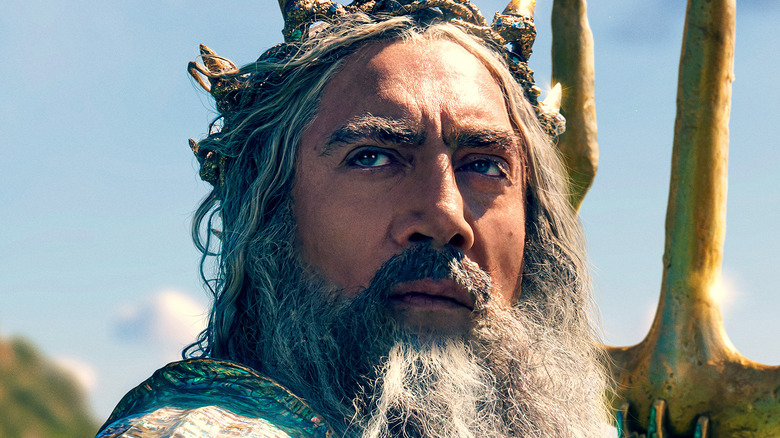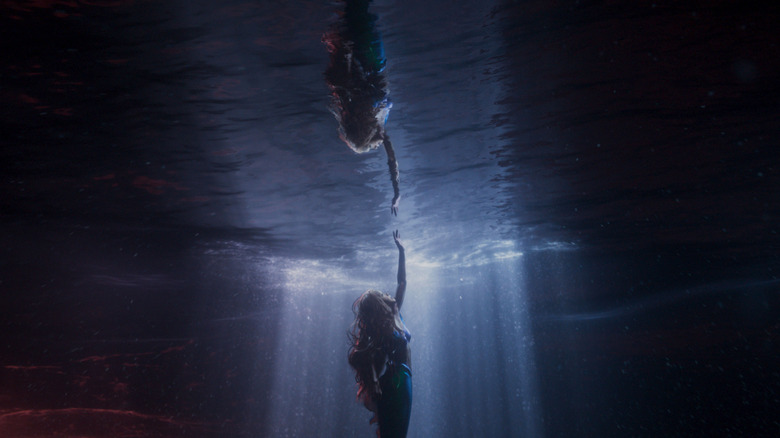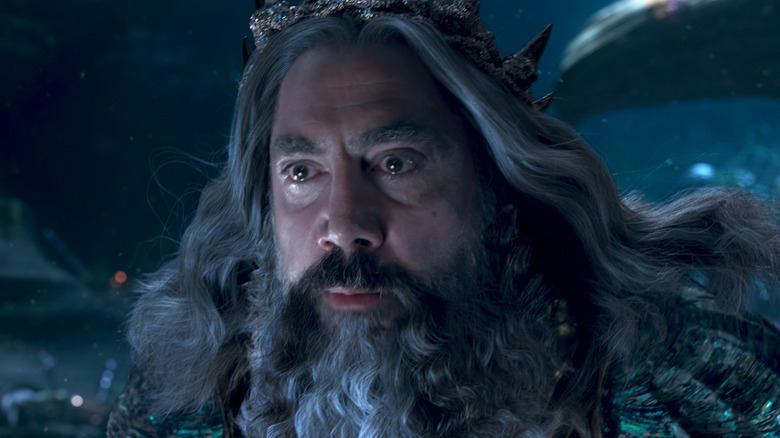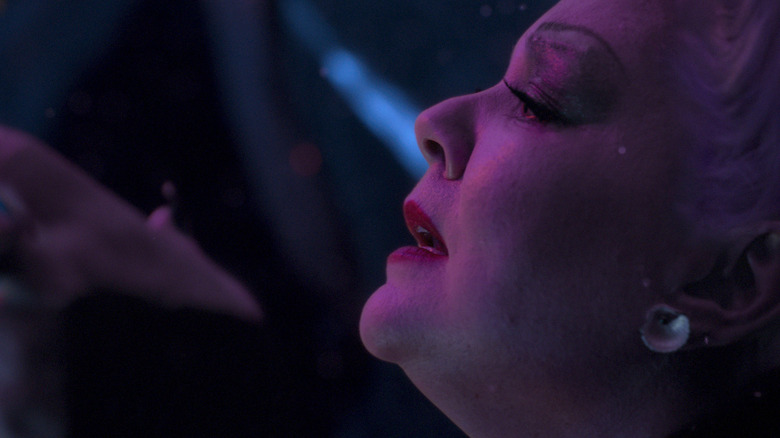The Little Mermaid Has Always Been An LGBTQ Allegory – And The New Movie Keeps That Alive
This post contains spoilers for "The Little Mermaid."
The story of "The Little Mermaid" is an old one. Hans Christian Anderson wrote the original fable — about a mermaid who wants an immortal soul, and must earn it by winning the love of a human as part of a deal with a sea witch — in 1837. Using letters and correspondence to Anderson's friend Edvard Collin, some scholars have interpreted the story as an LGBTQ+ allegory, where the transformation of the mermaid into something that could love this man was a stand-in for Anderson being unable to consummate his love for Collin.
The story has been used for inspiration and fodder by everyone from Oscar Wilde to Shirley Temple, but the best-known iteration of the story was really the Disney animated musical that was released in 1989. The ending was notably changed from Andersen's original conclusion, in which the little mermaid's love goes unrequited and she throws herself into the sea to die — only to be reborn as a spirit, with another chance to earn an immortal soul by striving to help mankind for three hundred years. Disney's ending is a bit more straightforward: Ariel wins the prince's heart, keeps her human legs, and lives happily ever after.
That film was a huge success and became a staple for Disney kids everywhere. The newest take on "The Little Mermaid" is a pretty faithful live-action adaptation; if you had any special connection to the original film, there's no reason to think you'll hate this. They've removed a song or two, and they've added a few more. They've bulked up the running time, and they came up with something visually opulent. It's a perfectly cromulent adaptation and will check a lot of entertainment boxes for folks.
Part of Your World
Most people will look at "The Little Mermaid" and think the most important story is Ariel's. For the most part, they're right. She's the central protagonist and it's her desires that drive the story. For kids watching the movie, there's a potent message that tells them that they, too, can overcome barriers and step into a world that's outside of their own. The brilliance of the film's allegory is that it could very easily be seen as a message for LGBTQ+ people: they can be the person they want to be, and love the person they want to love.
There's something very subversive about the relationship being heterosexual on paper, but the idea that Ariel has to modify her body so drastically to fit in the way she wants to is powerful — and it hits harder today than it did in 1989. Hell, I imagine it's going to hit harder for those folks looking for acceptance now than when the film went into production a few years ago. That's how far the world has descended into lunacy: creating a panic over trans folks as though they aren't just people trying to live their most authentic lives.
It's this panic that makes me wonder if the most powerful story inside "The Little Mermaid" isn't Ariel's, though. Perhaps it's King Triton's.
Fit for a king
I don't want to take the story away from Ariel (played beautifully by Halle Bailey) and center things on a dude. That's really not what I'm saying. But King Triton (Javier Bardem) represents those people on the fence. Many of those parents that are taking their kids to see this movie are the ones who are getting caught up in the panic over trans rights.
As a father of a trans-non-binary kid, King Triton's story felt easily the most relatable. He wants to maintain the old order of things; he distrusts the humans and thinks they're responsible for everything bad in the sea. He doesn't want to see his daughter fall prey to them, let alone become one of them. When he discovers that Ariel has made a deal with the sea witch to become a human, he's enraged and feels like he's failed his daughter. Ursula's cave also feels like a powerful allegory, too: in this day and age when politicians ban the proper care from professionals — from trans health care to abortions — those in need of that care will get it wherever they can, safe or not.
Giving in to fear
In the Disney version of the story, King Triton sacrifices himself to the Sea Witch in order to save his daughter. His love for her is so great that he will give up his power in order to save her. He hands that power to the person who would do her the most harm — which feels like another allegory, representing the idea that if we give in to our fears about the care that our children need, we hand that power to people who would wield it for evil.
We see that every day in the political systems in our world, particularly in the United States and the United Kingdom. People are whipped into frenzies about the alleged danger of trans folks existing, and the alleged abuse of parents who deign to help their kids lead their lives more authentically. They think they're saving their kids, but instead, they're handing power to politicians that are using this as a wedge issue to make everyone's life worse.
This iteration of "The Little Mermaid" wears all of this on its sleeve and makes no attempt to soften the message for conservative parents who will be taking their kids to see the movie. In fact, the filmmakers leaned into it — and that's a good thing.
A personal story
At the end of the film, Javier Bardem's King Triton finally understands the lesson he's supposed to learn. As he watches his daughter yearning to be human, he finally does the right thing and uses his power to help her transition into the body that will make her happy. His power is sufficient to give her what she wants, and he withheld it from her because of his own misguided notions of the world. Her happiness, though, is more important than his beliefs and he finally grows enough to realize it.
Earlier this year, my 19-year-old trans-non-binary child underwent top surgery. They did not feel comfortable in their body and I had that Triton-like power — thanks to my insurance coverage — to bring them that happiness. I cried at the end of "The Little Mermaid," when Ariel looks at her father because I saw that same look on my kid's face after they recovered from their surgery.
Nothing makes a parent happier than a happy kid, and if they need to have a radical change to their body to confirm that — whether that's getting rid of a fin and tails, or getting rid of the need to wear constricting chest binders — then what's the harm in that? What Triton did here is what we should all aspire to do.
Roger Ebert always said that movies were machines designed to create empathy, and I hope King Triton's turn in this movie can help even one parent struggling with the idea of having a trans kid gain the empathy they need to help their kid instead of hate them. Or feel disappointed. Or shun them.
Instead, their kid can be happy with the life they want to lead and the body they want to have. Just like Ariel.
"The Little Mermaid" is in theaters everywhere today.




